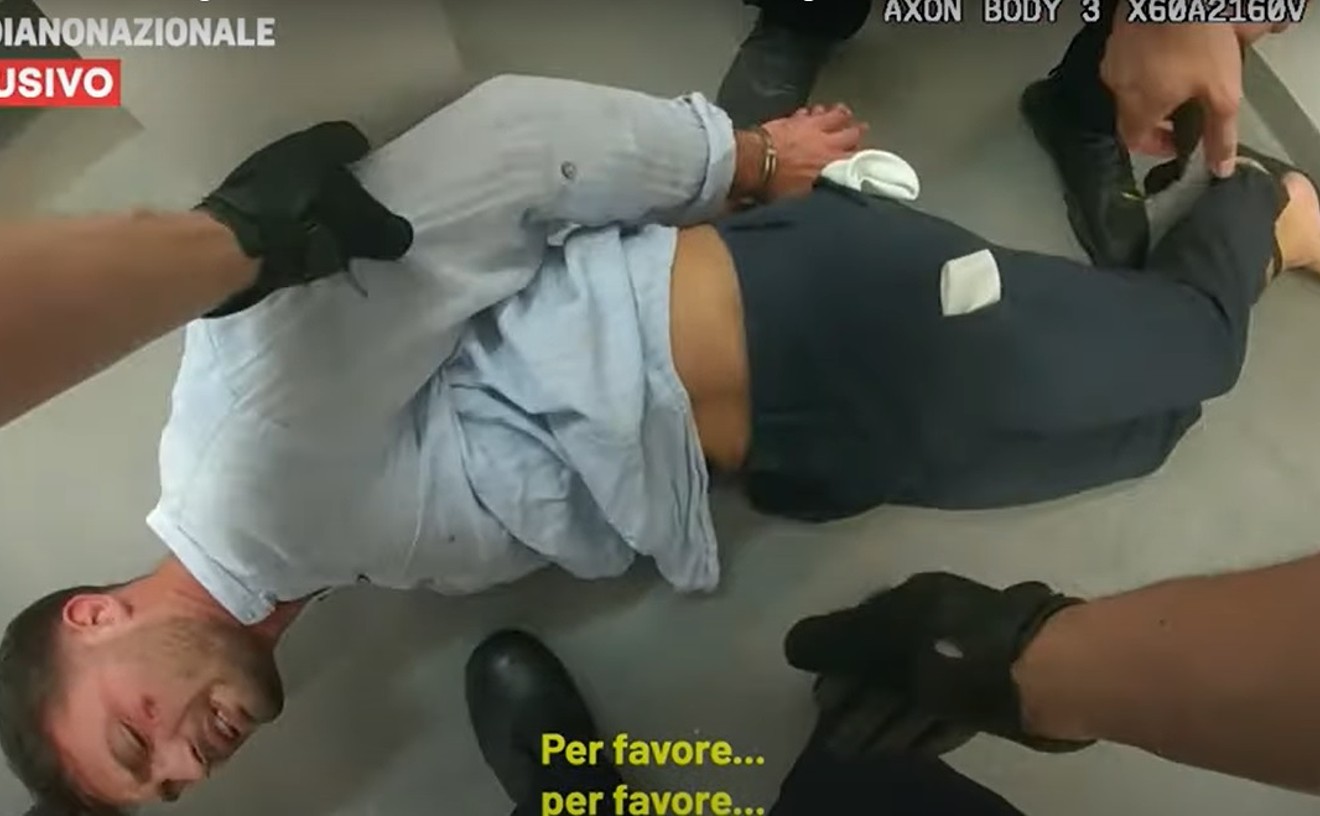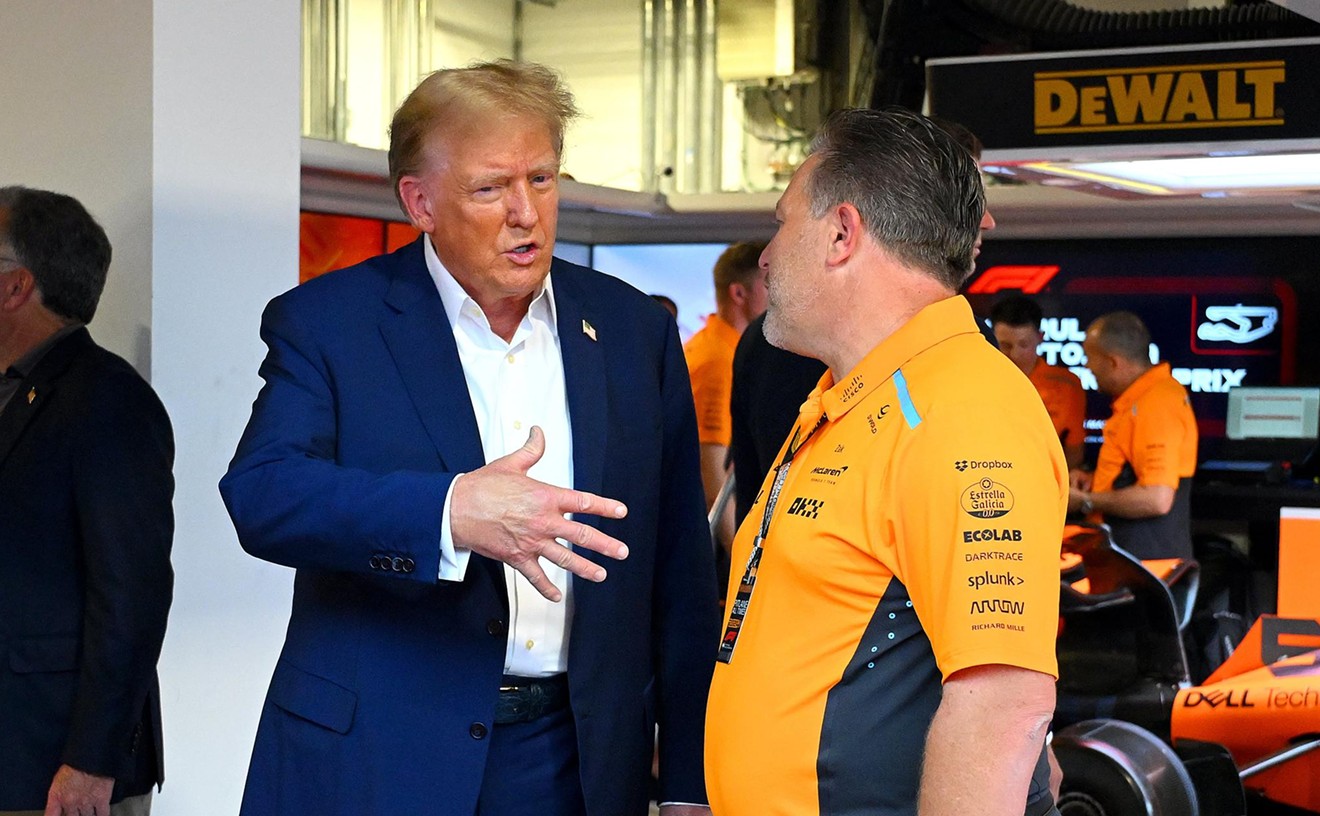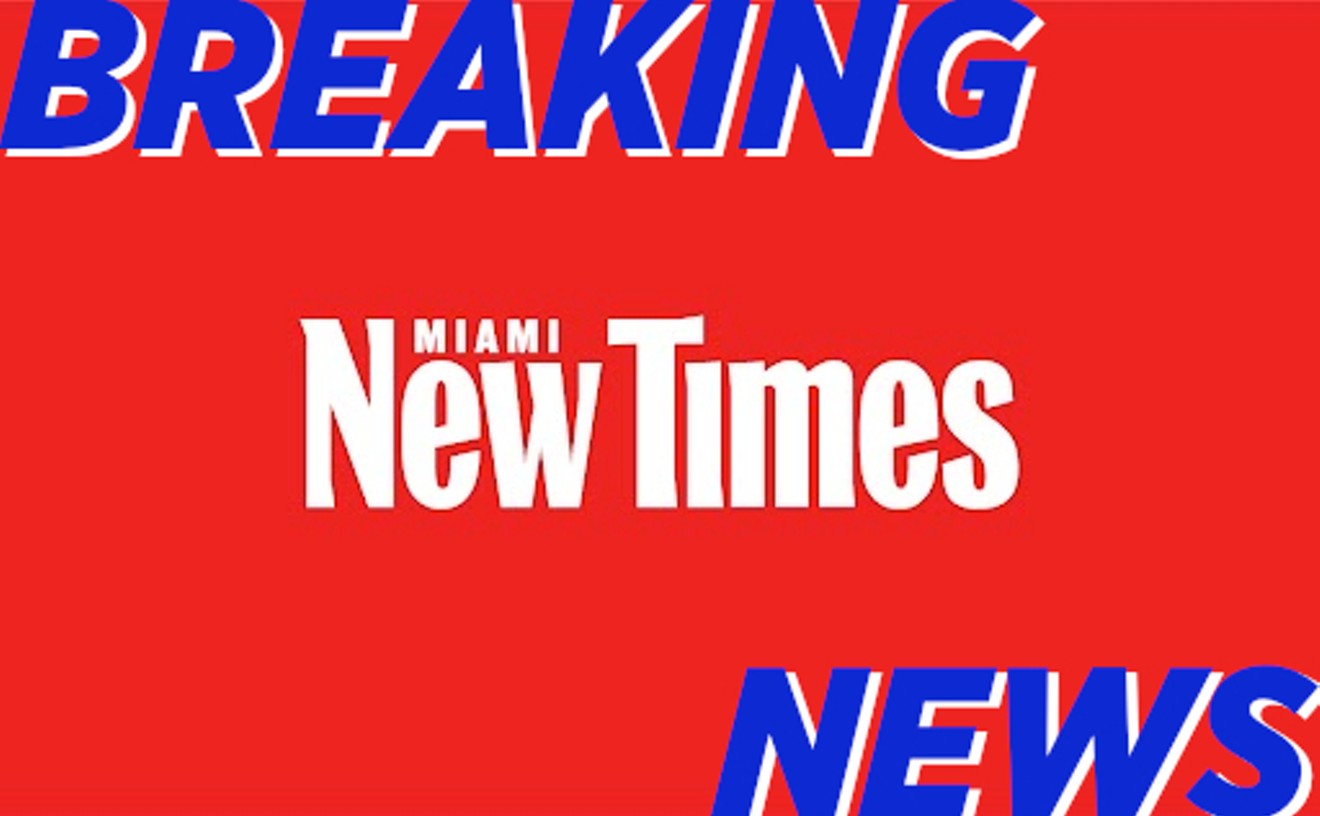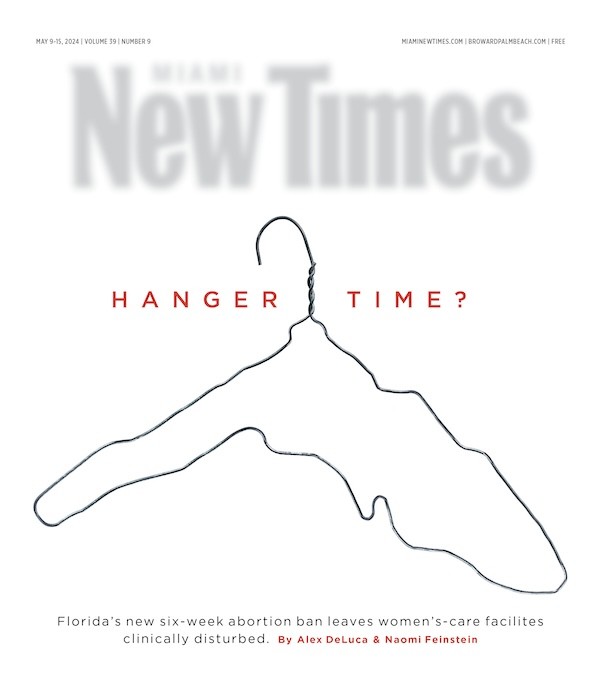Andrew Marshall sat in the doctor's office, miserable. As nurse Chandra Wilson took his blood pressure, the small man with a dark mop of hair and a scraggly beard complained of piercing back pain caused by a work accident nearly two years earlier. His injury had cost him his job with the City of Miami, he said. It had also damaged his health. He couldn't sleep and had trouble walking.
It was December 2003, and doctors had ordered a psychiatric evaluation. Marshall admitted to the nurse that unless he got help, his rage might become "destructive."
"What do you mean, 'destructive'?" Wilson asked.
"I know how to make bombs and silencers," he answered. "How's that for destructive?"
But Marshall's anger and destructive urges went unchecked. Over the next three and a half years, they would grow exponentially, carrying the brilliant but frail outcast from upper-class New Yorker to man at the breaking point. (For details about Marshall's childhood, injury, and lawsuits against the city, see Part 1.)
"Andrew got angry and depressed and made some mistakes," says friend David Bricker, who in 2003 lived on a boat near Marshall's in a free mooring area next to Dinner Key Marina.
Beginning in January 2007, Marshall began acting on the destructive impulses he had confessed to Wilson. He purchased an arsenal including a grenade launcher, 15 grenade casings, an unarmed rocket, fuses, two assault rifles, and a sniper rifle with a laser sight — mostly online. He also bought chemicals to make explosive powder.
He began issuing threats May 11, 2007, when U.S. District Court Judge Jose Martinez refused to block authorities from booting freeloaders like Marshall from the Dinner Key anchorage. Marshall, who had sued the state to stop the eviction, was pissed. The next day on the marina's website, he wrote, "The Courts mostly disregard the law and constitutional rights nowadays, and their... example must be followed... Shooting tyrants is not a legal right. It's a natural right — the exact same right the powerful and influential have to destroy and kill the rabble — if they can get away with it." He included a photo of himself with a gun, but quickly removed it.
On May 23, when Martinez finally dismissed the case against the state, Marshall stood up in court and shouted angrily at the judge.
A month later, Miami Police conducted a surprise inspection of Marshall's 30-foot fiberglass sailboat. The scrawny, scruffy Marshall courteously invited them aboard, even loaning one officer three DVDs about how 9/11 was a government plot. Cops noticed a (legally owned) shotgun and loose ammunition on the boat. On Marshall's bed sat a laptop and printer. One officer also reported seeing a copy of The Anarchist Cookbook, the Vietnam-era guide to do-it-yourself explosives.
When cops returned eight days later with an undercover FBI agent, Marshall again welcomed them. But the second visit wasn't as friendly. According to court documents, Marshall showed off a powerful black sniper rifle with a scope. He also "displayed a pineapple grenade with holes on the top and bottom. Mr. Marshall then displayed a firing pin for the pineapple grenade. The officers asked if the firing pin worked, and Mr. Marshall pulled the pin and a spark was created," according to a search warrant affidavit. When the FBI agent said that all the grenade needed was explosive powder, Marshall nodded in agreement.
After leaving the boat, FBI agents decided Marshall was dangerous. Their investigation had already revealed that he had recently bought five pounds of potassium nitrate and one pound of sulfur: the main ingredients in explosive powder. He had also bought fuses, grenade casings, and a precision scale. FBI explosives experts reasoned that Marshall could easily convert his inert grenades into "active destructive device[s]." Authorities decided to act.
On the afternoon of July 6, two dozen FBI agents and Miami Police confronted Marshall as he stepped out of a Starbucks in Coconut Grove. They raided his boat as well as a storage unit he had rented for years off South Dixie Highway just blocks from the marina. There they found two AK-47s, a sniper rifle, grenade launchers, and dozens of manuals on everything from sniper training to chemical/biological warfare. One manual was titled "The Advanced Anarchist Arsenal: Recipes for Improvised Incendiaries and Explosives."
The feds also found four baffles for gun silencers and a mechanical lathe Marshall had used to make them. Under interrogation, the former dockworker confessed to making the silencers but claimed he had made them at least three years earlier. He said he had planned to sell them before realizing it was illegal. He was charged with receiving explosive materials, making firearms (the silencers) without a license, and possessing unregistered and unmarked firearms (again, the silencers). In Florida, however, owning an AK-47 or inert grenade isn't against the law, and the explosives charge was later dropped.
In jail, Marshall became the lawyer his Madison Avenue corporate attorney father had expected him to be. He dismissed one public defender after another, deciding to represent himself instead. In court documents, he claimed he was planning to resell the "militaria" online and that he was making "black powder" for pyrotechnics. But his countless motions only dragged the case out for four years. Some of his hundreds of courtroom statements were later used against him. This past August 3, a jury found Marshall guilty on all five counts. He will be sentenced just after Thanksgiving. Maximum possible: ten years in prison.
"He was stupid to get rid of his lawyers," Andrew's father, Gordon Marshall, admits. The former power lawyer now resides in an assisted living facility in New York. Andrew cut off contact with his family months ago, so Gordon had no idea his son had been convicted until contacted by New Times. "The charges are ridiculous," he says. "I don't know if they drove him to this, but I know that they didn't handle him the way they should have, the way he deserved."
But Gordon Marshall hasn't seen his son in a decade, long enough to miss his descent into paranoia. Asked about Andrew, he recites the same story over and over again, as if to convince himself of the boy's innate goodness: When his son was 8 or 9 years old, he was sitting at the breakfast table when Gordon swatted a fly. The boy began crying. "Why did you kill it?" little Andy asked. "It was a life."
That story doesn't jibe with the younger Marshall's web rants, the arsenal found on his boat, or his detailed sketches showing how to convert his inert grenades into lethal explosives.
It's unclear what plot, if any, Marshall had in store for the marina or the City of Miami. The FBI and Miami Police were clearly worried about the combination of his anger and explosive materials. But as startling as Marshall's arsenal was, and as chilling as his threats, the only crimes prosecutors could pin on him related to the silencers.
"All of the other information and evidence didn't establish a crime," says David Tucker, a court-appointed attorney who represented Marshall during his trial. "Even the chemicals were, unto themselves, legal."
But Tucker allows that Marshall has serious problems, which he intended to introduce in court during sentencing in November. Instead, Marshall dismissed the lawyer and is representing himself once again.
"I saw no evidence of a government conspiracy [to set Marshall up in retaliation for his lawsuits]. This is a pretty straightforward case," Tucker says. "Marshall has very serious emotional and mental issues that the court should consider."
Steve Bickle, a neighbor from the marina, defends him. "I know that they accused him of making a silencer, but all he had was a tube and some washers. That's it. He never completed anything," he says. "Their attitude is: 'If you don't agree with the government, you must be a bad guy, you must be a terrorist.'" He moved to northern Florida shortly after Marshall's arrest.
Friend Dave Bricker concedes, "It's a big mess, most of all for Andrew Marshall. But given the pain Andrew was under and the obstacles he was up against, I think a lot of people would have cracked."











